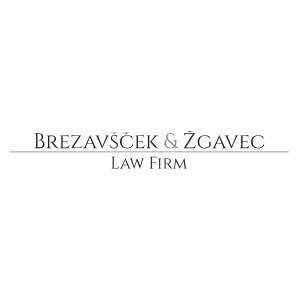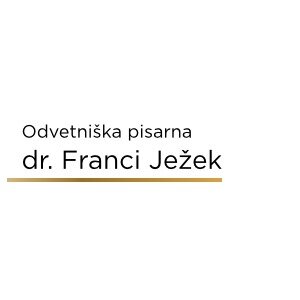Best Renewable & Alternative Energy Lawyers in Slovenia
Share your needs with us, get contacted by law firms.
Free. Takes 2 min.
Or refine your search by selecting a city:
List of the best lawyers in Slovenia
About Renewable & Alternative Energy Law in Slovenia
Renewable and alternative energy law in Slovenia is a dynamic field closely tied to the country's commitment to green transition and sustainable energy development. Slovenia has set ambitious targets for increasing its use of renewable energy sources, such as solar, wind, hydro, and biomass, in order to meet both national and European Union (EU) climate goals. The legal framework governs everything from project development and permitting, to grid connection and feed-in tariffs, to incentives and compliance with environmental regulations. Whether you are a private individual, a business, or an investor, understanding these laws is crucial for successful engagement in the renewable energy sector in Slovenia.
Why You May Need a Lawyer
Navigating renewable and alternative energy projects often involves complex legal and regulatory challenges. Here are some common situations where legal assistance is beneficial:
- Applying for permits and licenses for energy projects
- Understanding incentive schemes and subsidies
- Negotiating contracts for land use, grid connection, and energy purchase agreements
- Dealing with zoning, environmental, and construction regulations
- Resolving disputes between stakeholders, such as project developers, local communities, or regulatory bodies
- Complying with national and EU standards on emissions and energy efficiency
- Acquisitions, joint ventures, or investments in renewable projects
A skilled lawyer can provide guidance throughout these processes, help you avoid legal pitfalls, and ensure your project is compliant with all requirements.
Local Laws Overview
Key legislation shaping renewable and alternative energy in Slovenia includes the Energy Act (Energetski zakon), laws regulating environmental protection, the Construction Act, and rules set by the Energy Agency of the Republic of Slovenia (Agencija za energijo). Here are some relevant aspects:
- Permitting and Licensing: Most renewable energy installations require various permits, including location, environmental, and construction permits. The procedures are overseen by different governmental bodies.
- Incentive Programs: Slovenia offers financial incentives, like feed-in tariffs and subsidies, for certain types of renewable projects, subject to eligibility and quotas defined by law.
- Grid Access: Laws ensure fair and transparent conditions for connecting renewable installations to the national electricity grid.
- Environmental Compliance: Projects must comply with environmental impact assessment requirements, especially in protected or Natura 2000 areas.
- Land Use: Use of land for renewable projects often involves zoning restrictions and local community input, especially for large-scale solar farms or wind parks.
- EU Law Harmonization: Slovenian law must align with EU directives and regulations on renewable energy, emissions reduction, and market liberalization.
Frequently Asked Questions
What types of renewable energy are most common in Slovenia?
Hydropower, solar energy, and biomass are widely utilized. Wind power is developing but currently plays a smaller role compared to other sources.
Do I need a permit to install solar panels on my home?
Small rooftop installations for self-consumption may be exempt from some permits, but larger or grid-connected systems typically require construction and grid-connection permits.
How are renewable energy projects subsidized in Slovenia?
Projects may be eligible for state incentives, such as feed-in tariffs, investment grants, or guaranteed purchase agreements, subject to eligibility criteria and available quotas.
What is the procedure for connecting a renewable energy project to the grid?
The procedure involves submitting an application to the grid operator, technical assessment, signing a connection agreement, and fulfilling technical requirements before commissioning.
Can foreign investors participate in the Slovenian renewable energy sector?
Yes, foreign investors are allowed to own and operate renewable energy projects in Slovenia, subject to compliance with local laws and regulations.
What are the main environmental requirements for renewable energy projects?
Depending on the size and location of the project, an environmental impact assessment may be required. Projects in protected areas are subject to stricter rules.
Are there tax benefits for renewable energy investments?
There are certain tax incentives for energy efficiency and renewable energy investments, but they are subject to specific terms and periodic changes. Legal advice is recommended to assess eligibility.
How long does it take to get approval for a renewable energy project?
Timelines vary based on project size, location, and type. Simple projects may be approved in a few months, while larger or more complex projects can take a year or more due to comprehensive permitting and environmental review.
What happens if my project does not comply with national or EU regulations?
Noncompliance can result in fines, revocation of permits, or project suspension. Ensuring legal compliance from the outset is important to reduce risks.
Can individuals or cooperatives develop community energy projects?
Yes, cooperatives and community groups can initiate renewable projects. This often requires collective organization, legal structure setup, and adherence to standard permitting and regulatory procedures.
Additional Resources
If you are seeking more information or support, consider reaching out to the following organizations and governmental bodies:
- Energy Agency of the Republic of Slovenia (Agencija za energijo) - regulator for energy markets and grid connection
- Ministry of Environment, Climate and Energy - sets energy and environmental policy goals
- Slovenian Environmental Agency (ARSO) - environmental permitting and impact assessment
- Eco Fund (Eko sklad) - provides subsidies and loans for renewable energy and energy efficiency projects
- Chamber of Commerce and Industry - energy sector support and business advice
- Renewable Energy Industry Associations - for networking and sector updates
Next Steps
If you need legal assistance in the field of renewable and alternative energy in Slovenia, consider the following steps:
- Clearly identify your project goals and gather relevant documentation (site plans, business plans, previous permits, etc)
- Consult with a qualified lawyer who specializes in energy and environmental law to assess your options and obligations
- Work with professionals (such as engineers and project consultants) who have experience with the regulatory landscape in Slovenia
- Engage early with local authorities and stakeholders to smooth the permitting and approval process
- Stay updated on changes in legislation and incentive programs, as policies may evolve over time
Taking these steps will help you navigate the legal complexities of the renewable energy sector and increase your project's chances of success.
Lawzana helps you find the best lawyers and law firms in Slovenia through a curated and pre-screened list of qualified legal professionals. Our platform offers rankings and detailed profiles of attorneys and law firms, allowing you to compare based on practice areas, including Renewable & Alternative Energy, experience, and client feedback.
Each profile includes a description of the firm's areas of practice, client reviews, team members and partners, year of establishment, spoken languages, office locations, contact information, social media presence, and any published articles or resources. Most firms on our platform speak English and are experienced in both local and international legal matters.
Get a quote from top-rated law firms in Slovenia — quickly, securely, and without unnecessary hassle.
Disclaimer:
The information provided on this page is for general informational purposes only and does not constitute legal advice. While we strive to ensure the accuracy and relevance of the content, legal information may change over time, and interpretations of the law can vary. You should always consult with a qualified legal professional for advice specific to your situation.
We disclaim all liability for actions taken or not taken based on the content of this page. If you believe any information is incorrect or outdated, please contact us, and we will review and update it where appropriate.
Browse renewable & alternative energy law firms by city in Slovenia
Refine your search by selecting a city.

















